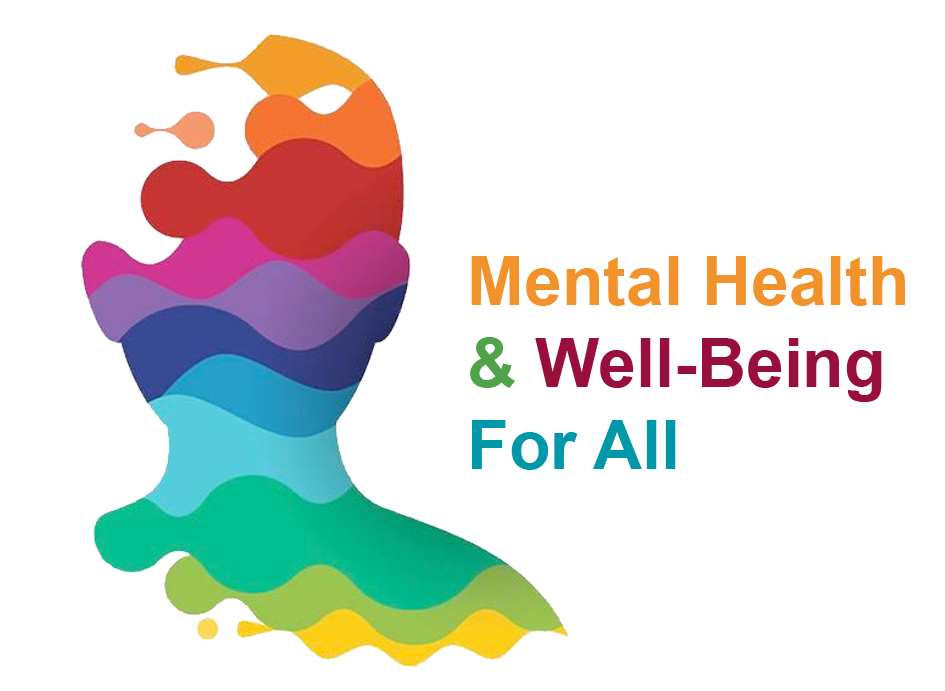
MENTAL HEALTH AND WELL-BEING BY-BISHMA BAKEER
Mental health refers to a person’s overall psychological well-being. It includes their emotional, psychological, and social well-being, and affects how they think, feel, and behave in their daily life. It is important for individuals to maintain good mental health in order to lead a fulfilling and healthy life. There are many factors that can affect mental health, including: Biological factors such as genetics, brain chemistry, and hormonal imbalances. Environmental factors such as stress, trauma, and social and economic disadvantage. Life experiences such as childhood abuse, neglect, or neglect, and other forms of trauma. Social factors such as social isolation, discrimination, and lack of support. Psychological factors such as coping mechanisms, resilience, and coping strategies. Substance abuse and addiction. Medical conditions such as chronic pain, chronic illnesses, and chronic stress can also affect mental health. It’s important to note that mental health is complex and multifaceted, and different things can affect it differently. Also some people might be more vulnerable to certain factors and less to others. Youths may face a variety of problems related to mental health issues, including: Difficulty in school: Mental health problems can affect a youth’s ability to focus, learn, and perform well in school. Social isolation: Mental health issues can make it difficult for youths to form and maintain friendships, leading to feelings of loneliness and isolation. Substance abuse: Some youths may turn to drugs or alcohol as a way of coping with mental health problems, which can lead to addiction and further mental health issues. Self-harm or suicidal behaviour: Mental health problems can lead to thoughts of self-harm or suicide, which can be a serious concern for youths. Difficulty in forming relationships: Mental health problems can affect the ability of youths to form and maintain healthy relationships, which can have a negative impact on their emotional well-being. Difficulty in self-care and daily functioning: Mental health problems can affect a youth’s ability to take care of themselves, leading to poor hygiene, lack of motivation, and difficulty completing daily tasks. It’s also important to note that youths with mental health issues may also be at a higher risk of experiencing physical health problems and may have trouble accessing appropriate care.
There are several things that can be done to protect and maintain good mental health, such as: Eating a healthy diet: Eating a diet that is rich in fruits, vegetables, and whole grains can help to improve mental health. Getting regular exercise: Regular physical activity can help to reduce stress and improve mood. Getting enough sleep: Getting enough sleep is important for overall health, including mental health. Managing stress: Finding healthy ways to manage stress, such as through meditation, yoga, or other relaxation techniques, can help to improve mental health. Building a support network: Surrounding yourself with a supportive network of friends, family, and professionals can help to improve mental health.
Seeking professional help: If you are experiencing mental health problems, it is important to seek professional help from a therapist, counsellor, or psychiatrist. Avoiding substance abuse and addiction. Having a positive attitude and outlook on life. Practicing self-care: Taking care of yourself is important for maintaining good mental health, this includes things like taking care of your physical health, getting regular check-ups, and practicing self-care activities.
It’s important to note that different things may work for different people, so it’s important to find what works best for you. Additionally, if you have severe or persistent symptoms, it’s essential to seek professional help.
Having good mental health can bring many advantages, improved overall well-being: Good mental health can lead to a sense of overall well-being and satisfaction with life. Increased ability to cope with stress: Good mental health can make it easier to cope with stress and challenges in life. Better physical health: Good mental health.
Can have a positive impact on physical health, and can reduce the risk of developing certain physical health conditions. Improved relationships: Good mental health can improve the ability to form and maintain healthy relationships with friends, family, and loved ones. Increased productivity: Good mental health can improve focus, concentration, and motivation, which can lead to increased productivity and success in work or school. Greater sense of purpose and meaning: Good mental health can help to provide a sense of purpose and meaning in life. Greater ability to enjoy life: Good mental health can help to improve overall enjoyment of life, by allowing people to engage in activities they enjoy, and enjoy their life experiences. Better decision making: Good mental health can help with decision making and problem solving by providing the ability to think clearly and rationally. It’s important to note that good mental health is not just the absence of mental health problems, but a state of well-being in which an individual is able to function in their daily life and reach their full potential.
On the other hand talking and educating about mental health should be normalized.
Normalizing mental health discussions can help to reduce the stigma and shame associated with mental health problems. It can also increase awareness and understanding of mental health issues, which can lead to early detection and intervention. Talking openly about mental health can also help people to feel more comfortable seeking help when they need it. It can also help to educate people on how to support their friends, family and colleagues who may be experiencing mental health issues. It can also help to create a more inclusive and supportive environment for people with mental health issues, in which they feel comfortable discussing their experiences and receiving support. When mental health is normalized, people tend to have more realistic expectations and understanding of what is mental health and mental illness, which can lead to better self-care, self-awareness and self-compassion. It can also help to create a more informed society that can understand the importance of mental health and mental illness and create policies, laws, and systems to support it. It’s important to note that normalizing mental health discussions does not mean that mental health should be the only topic of conversation or that people should always be talking about their mental health. It means that mental health should be talked about in a way that is open, honest and non-judgmental, in the same way that physical health is.




